|
In an exclusive interview artist and jewellry designet Jee Hye Kwon -winner of the "After Joya Effect II" public award- talks about her work and inspirations. We recently had the chance to meet and chat with this talented artist as she came to Greece all the way from New York for a solo show and a lecture at the "Popeye loves Olive" art gallery. We were able to get a close up look at her beautiful works and she was kind enough to show us photos of her work in progress in the interview that follows. (Για να διαβάσετε την συνέντευξη στα Ελληνικά πατήστε εδώ) 1. Could you tell us a little about yourself? Who you are and what you do? I am an Artist working in Art Jewelry. I was born and raised in Seoul, Korea and live and work in Brooklyn, New York. 2. How did you start making jewelry? In my childhood, I used to play with clay, paper, doll, and everything that I could get my hands on in order to create something interesting. I could keep going for hours and enjoyed it so much. I’ve always liked to use my hands to create things, and naturally progressed into making jewelry after studying gemology. 3. Why do you make jewelry? Because I’ve always enjoyed the process of creating my pieces; during the process of conceptual and physical creation, are the points when I feel the most fulfilled and happy. To try and put it simply, I just I follow my heart. 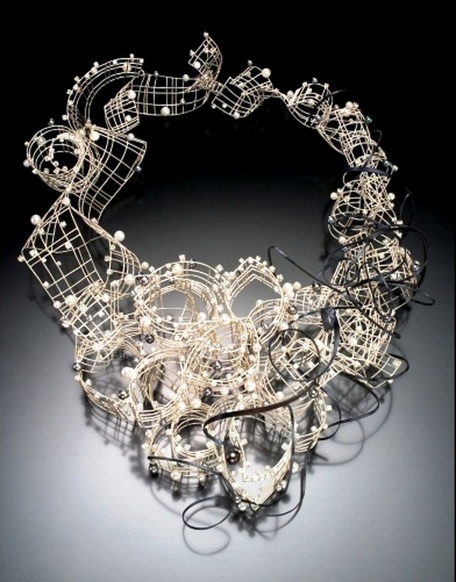 4. Could you talk about your process? Do you work intuitively? Do you have creative habits? My work is very much moving intuitively. To describe my process, I would use Jazz as a metaphor because it is organic and fluid. I move from the creation of one element then to the next, allowing the first element to influence the second, and so forth without intension until the piece is complete. 5. At your lecture presentation, you also mentioned your interest in music. Could you talk about the ways music influences and connects with your work? For me, music always transports me to an abstract world and evokes imagination in unlimited ways. When I think of music I think of the intangible, a form of art, a cultural activity, sound and silence. When listening to music, it doesn’t matter what genre: classical, hip hop, or Jazz, I get different emotions, I’m free to interpret the music my own way and it fuels my imagination and expressions into my work. I try to instill elements of music such as the rhythm, harmony, melody, structure, form, or texture on my work. 6. How do you use the folding paper technique in your working process? It is very simple. I cut pieces of paper, fold and play with the pieces until I find an interesting shape, then I begin to assemble them in order to find a structure or pattern that I think represents what it is I’m trying to express. 7. You were born in Korea, a country with a rich tradition and culture that spans 5.000 years of history. How does this affect your identity as an artist? Do you use traditional techniques in your work? Being Korean, I believe it is in our culture to care others first before ourselves. My father is the eldest son in my family and he always tries to keep the family tradition for honoring ancestors and connecting our roots. It was very big part of my family and requires a lot of responsibility with lots of ceremonial rules. Compared to other family in Korea, my family was more traditional in following these traditions. I’ve always respected the traditions, but it was a lot for me. The traditions affected my artistic identity by allowing me to see a bigger world, a world greater than just myself and taught me to be aware of a global perspective. I used to use Korean technique called Keumboo that brings sterling silver surface to fine silver and then layering 24k gold foil on the top of it. I like the technique, but I thought 24k gold color was too bright for my work. I will use it again whenever the Keumboo fits on my work. I have used a traditional Japanese form of metal working called Shakudo which includes creating the traditional metal and incorporating the metal into my pieces. 8. What do you love or miss the most about your home country? The people, and the culture of my hometown, and the spicy peppers, and the food. For the people I feel like the people of Korea are very much like the great people I met in Greece and especially on Ikaria. Very warm, caring, hospitable and so giving. For me food is a very important part of any culture, and its also very nostalgic since it brings back memories of our childhood. 9. You are now living in New York. What’s daily life like and how does it affect your work? I drink tea every morning as I plan my day, and then I being to work. Some days If I don’t feel like working right away, I would go to the exhibition, concert, performance, or movie. One of the things I love most about New York City is that I can find artistic or cultural experiences pretty easily whenever I want. 10. Your works are amazingly and meticulously crafted. How much time does it take to complete a piece, a necklace for example, from start to finish? I think artists get asked that question a lot, and as usual, we always have to make the distinction between the technical and the conceptual. Conceptually the ideas can be anywhere from a split second to several months. But Technically, I can say about 4-5 weeks to craft, depending on size and complexity of the concept. The real heart of any piece is the concept and design. Some pieces moves very smoothly and fast, but some pieces take a lot more time. It is not unusual for me to, stop in the middle of the process if I get stuck, and start working on a new piece, until I get a breakthrough or find some inspiration to return to the first. 11. If you were to give one single piece of advice to a beginner in jewelry making, what would that be? Enjoy the process. This is so important. Whatever they make and design, there will be many reasons to do it. As long as they enjoy what they do, they can develop their design and concept, and even technique. And be patient. Always will always be times when they will get stuck in finding an idea and design solution, but it will flow if you focus on the enjoyment of the process and let that be your goal, rather than an end result. 12. Where do you see yourself in 10 years? Would you like to share with us your some of your goals or plans for the future? I currently don’t have a long-term plan for my work. Usually I plan for 1 year. Right now I’m just focusing on doing my best, and letting life move organically. For more information you can visit her official homepage: www.jeehyekwon.com RELATED POSTS
2 Comments
xantho
7/8/2016 05:32:46 am
Very interesting interview!
Reply
Leave a Reply. |
All
LIKE FACEBOOK PAGE
|
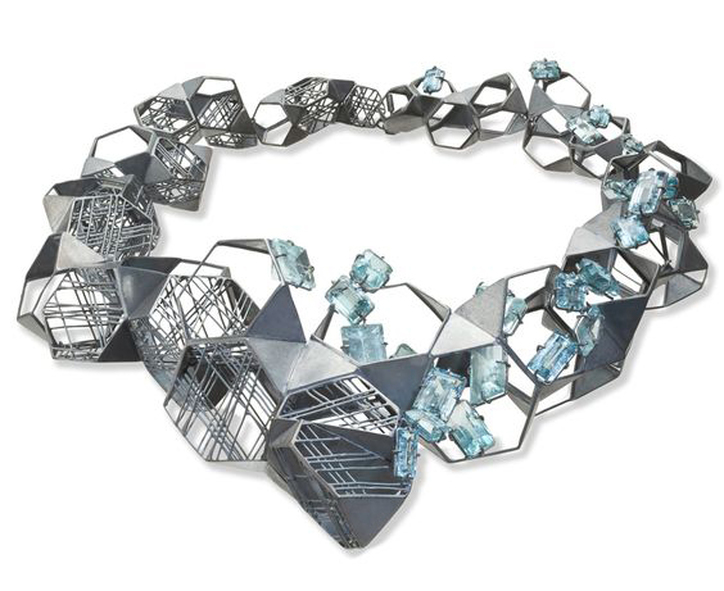
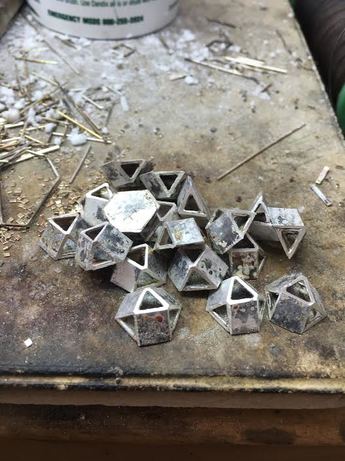
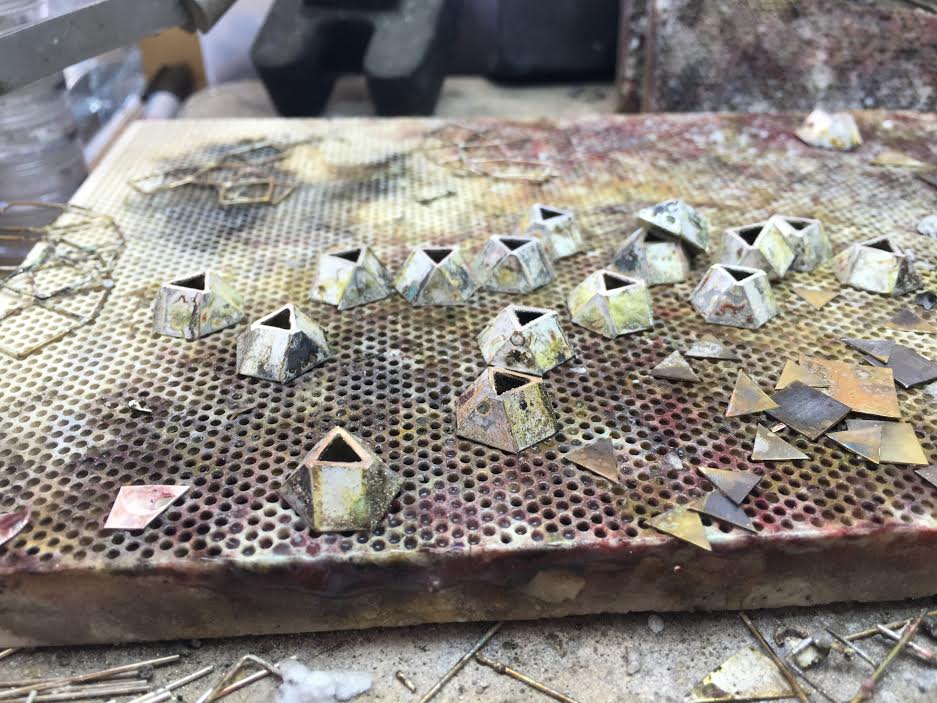
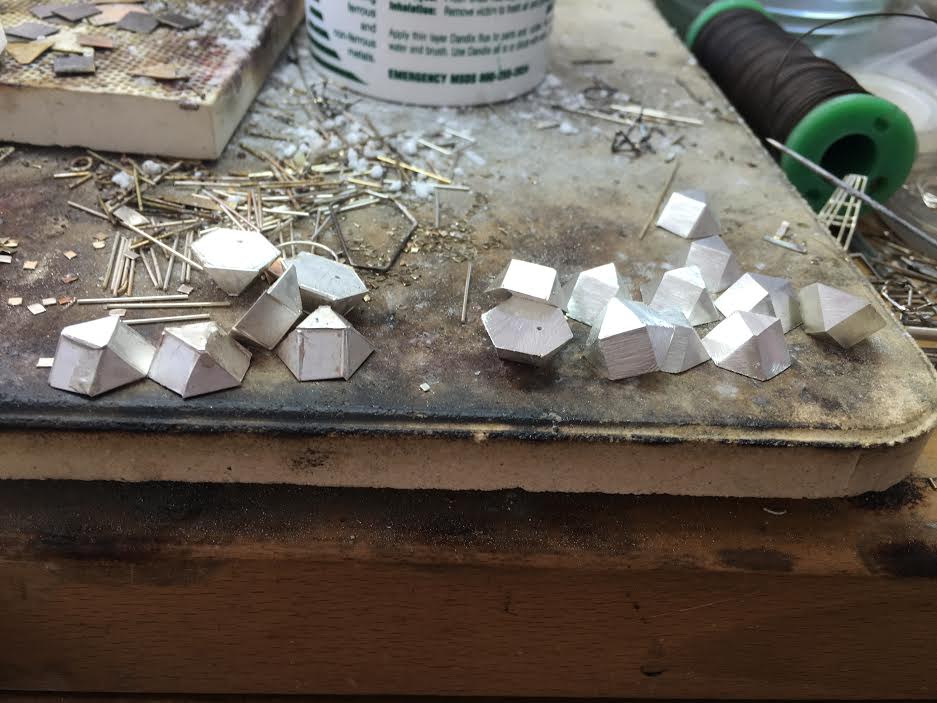
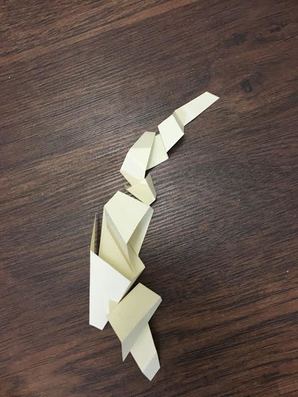
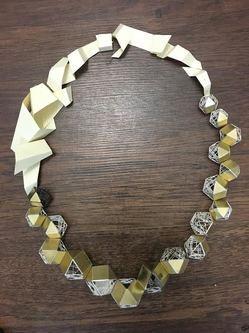
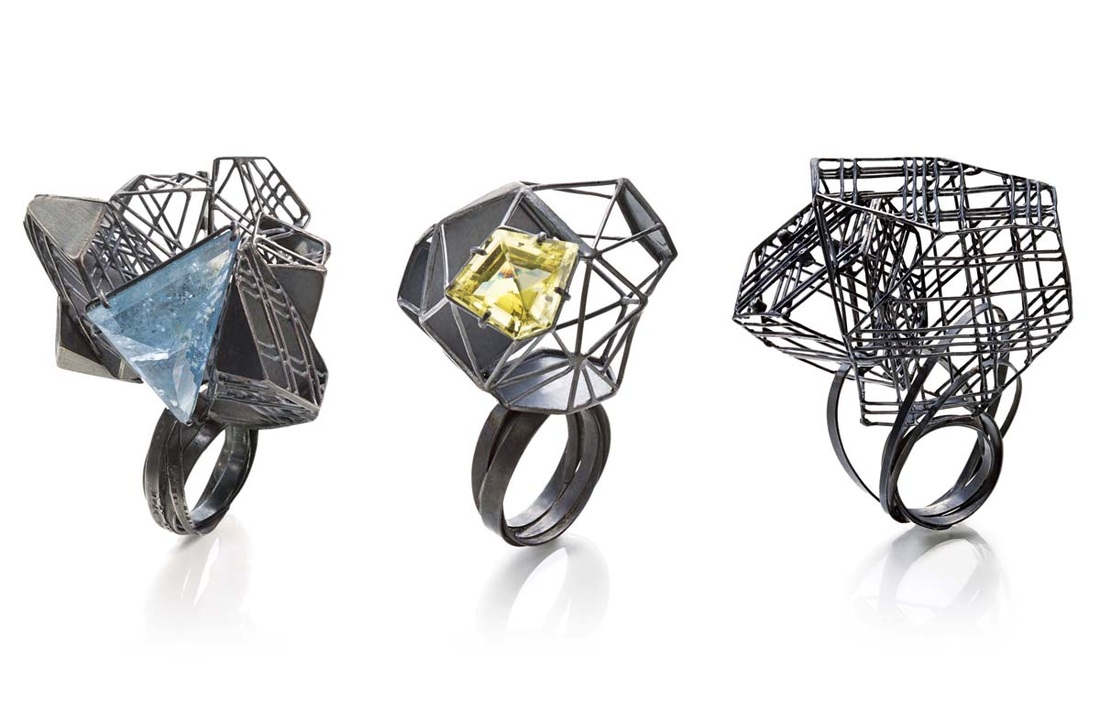
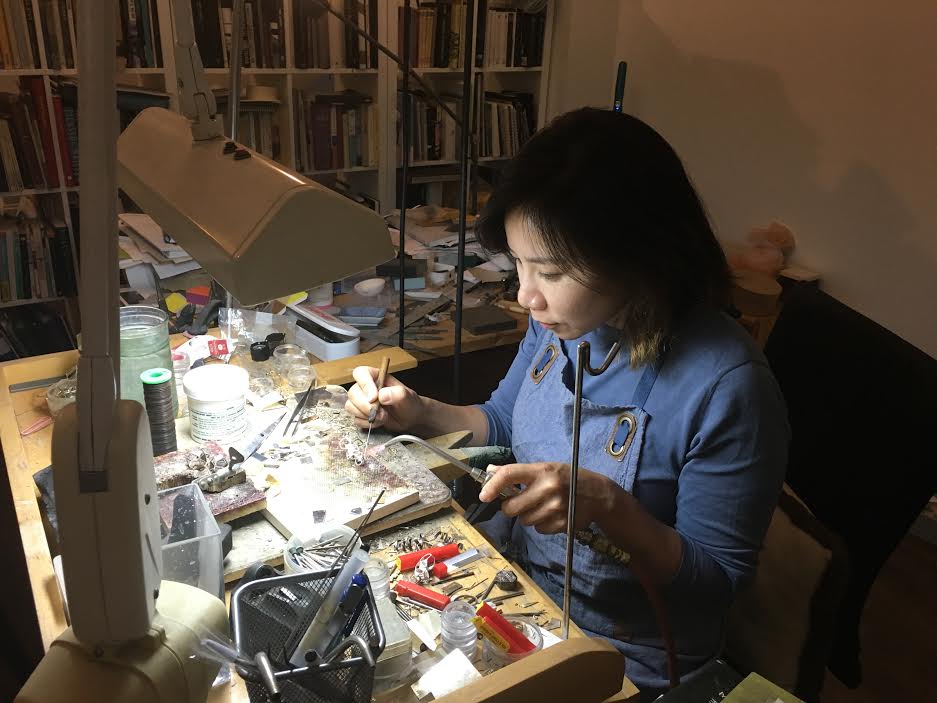
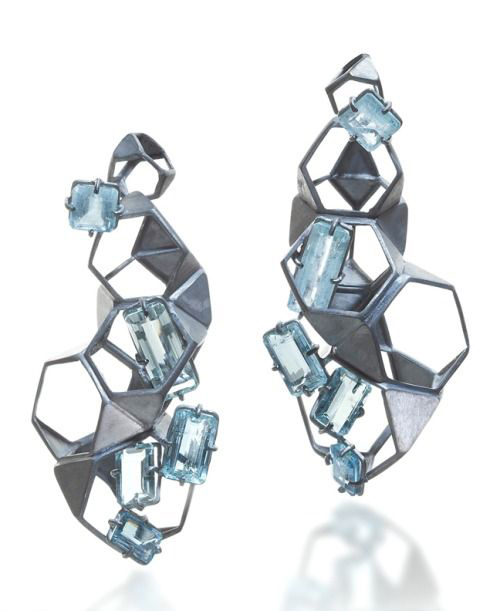
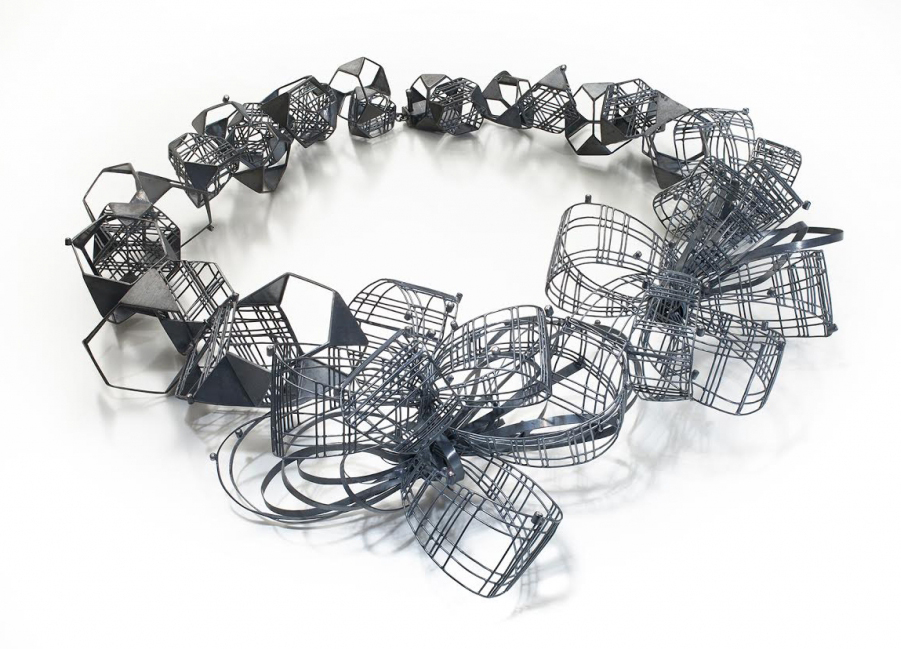
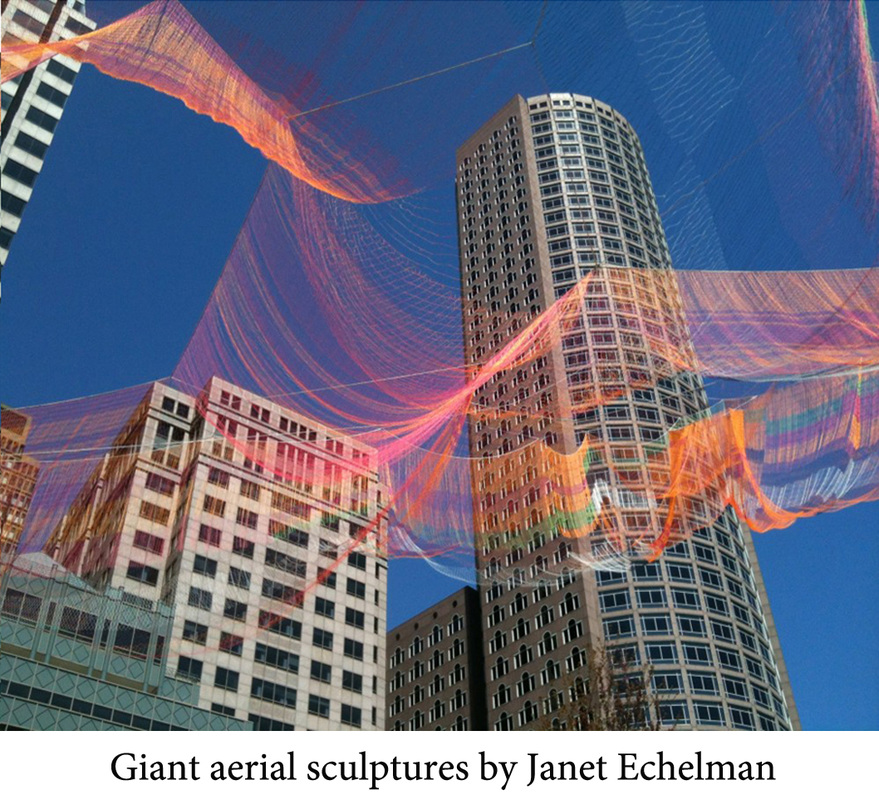
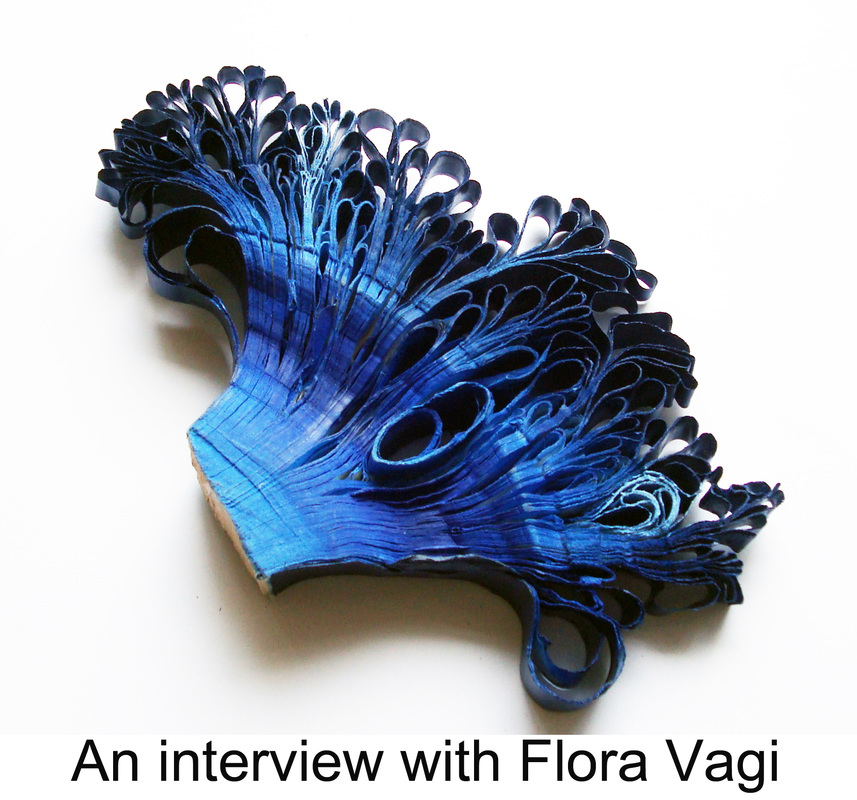
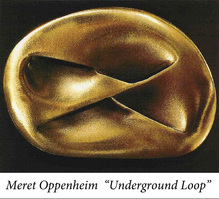
 RSS Feed
RSS Feed